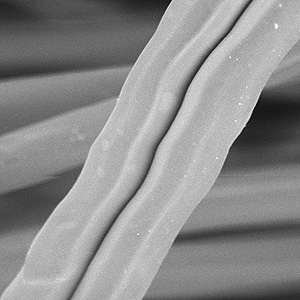Polypropylene is the lowest rated common fiber as far as temperature is concerned, but it exhibits one of the best chemical resistances, properties which match well with many specialist industries.
Under dry, non-aggressive conditions it will operate continuously at 90°C. It is a very low density fiber (it floats in water) and as a consequence it tends to produce quite thick felts for a given area weight; around 30% thicker than polyester.
Due to their chemical structure, the fibers don't hydrolyze, their weakness is a susceptibility to oxidation, so care is needed if strong oxidizing agents are present.
ACIDS - EXCELLENT
ALKALIS – EXCELLENT
OXIDISING AGENTS - FAIR
HYDROLYSIS - EXCELLENT
SOLVENTS – GOOD
Susceptible to attach by oxidizing agents such as hydrogen peroxide – used in the food industry, in chemical liquid applications and for certain fuel applications.
Maximum Continuous in Dry Conditions: 100°C / 212°F
Maximum Surge in Dry Conditions: 110°C / 230°F

The data shown and statements made in this document are representative properties and characteristics. Actual results may differ, depending on use. Lydall makes no warranty, express or implied, concerning results which may be obtained by using the product.

